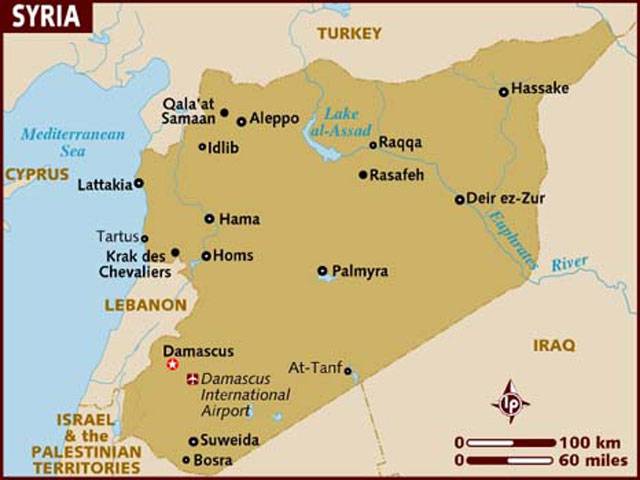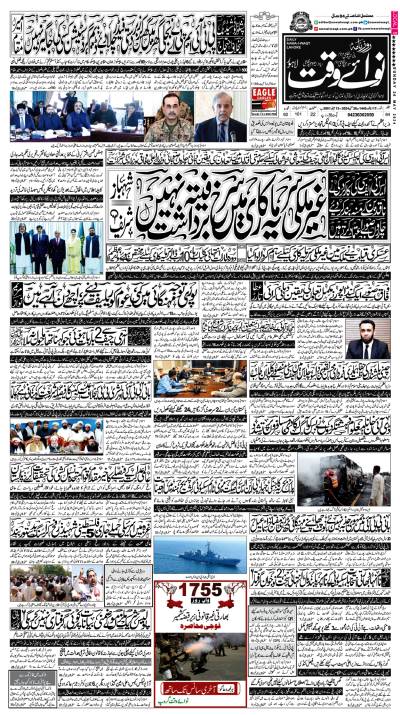BEIRUT (AFP/Reuters) - At least 43 people were killed in violence across Syria Tuesday, including 20 gunned down by regime forces while attending the funeral of a man killed the previous day, a monitoring group said.
The Syrian Observatory for Human Rights said the mourners died in Khan Sheikhun, a town in the northwest province of Idlib, while the remaining 23 victims died in unrest elsewhere across the country.
Meanwhile, a roadside bomb exploded in front of a convoy of UN ceasefire monitors in Syria on Tuesday, but no injuries were reported among UN workers, UN spokesman Martin Nesirky said.
The incident happened near the protest city of Hama. Nesirky said three of the four vehicles in the UN convoy were damaged.
The convoy hit the bomb just after 2:00 pm (1100 GMT), Nesirky told reporters.
The UN Supervisory Mission in Syria (UNMIS) has sent a patrol to help the stranded monitors, Ahmad Fawzi, spokesman for UN-Arab League envoy Kofi Annan said in a statement. He said the blast took place at Khan Cheikhoun, near Hama. "Three UN vehicles were damaged. No UN personnel were injured," Fawzi said.
UNSMIS also reported heavy fighting near the town of Rastan on Monday, a UN spokesman said. Activists said at least 23 soldiers and seven civilians died in fierce clashes between government forces and rebels in the central city.
The UN spokesman said a main highway into the city and that a "UN military patrol helped to get de-escalate the situation and get the highway opened after inter-action with government forces."
Meanwhile, Syria said on Tuesday over half of eligible voters turned out for a parliamentary election central to reforms that it says show President Bashar al-Assad's aim to peacefully resolve an uprising against him, but which opponents dismissed as a farce.
The head of the body that oversaw last week's vote told reporters that 51.26 percent of the electorate, or just over 5 million, took part in an election rejected in advance by opposition leaders as a ruse to buy time to crush dissent. "The election gave the people the broadest possible representation," Khalaf al-Azzawi told reporters at a televised news conference in Damascus.
"The election took place with full transparency, democracy, integrity, supervised and monitored by independent judicial councils which were not pressured by any side," he said.
The vote was overseen by elements of Syria's judiciary, which has seldom challenged the ruler's authority.
Azzawi declined to give a breakdown for participation in regions hard hit in the revolt - critics said no credible voting was feasible in areas under continued siege and shelling from Assad's forces - and it was not possible to verify the figures.
The election followed the adoption of a constitution that allowed new political parties - although no vote shares for individual parties were given and there are still effectively no parties functioning independently of Assad's Baath movement, which has ruled Syria for 49 years.
And the figures implied a turnout little different from that in parliamentary elections in 2007, when there was not even a nominal challenge to Baath rule and candidates were drawn almost entirely from the vetted ranks of its loyalists.
Azzawi read out a list of candidates who won seats in the 250-seat assembly, including independent figure Qadri Jameel, who had said the vote could be a "starting point for a political process" in Syria, despite a boycott by most opposition figures. Voting in the capital Damascus last week appeared patchy. At one polling station, where authorities said 137 people voted in the first three hours, foreign journalists saw only three people cast their ballots in a 40-minute period.
At the last parliamentary election in 2007, officials announced a 56 percent turnout. The new parliament is to convene within the next two weeks under a revised constitution that does not outline any substantially different role for the assembly. Western countries including the United States and Gulf powers led by Saudi Arabia and Qatar endorse opposition calls for Assad to step down as a first step to resolving the crisis, which now features an armed insurgency with sectarian overtones.
But no foreign power shows any appetite for the sort of military intervention that eventually brought down Libya's Muammar Gaddafi, and Assad has relied on Russia and China to block United Nations sanctions aimed at seeing him quit power.
The global body has proposed a ceasefire plan backed with international monitors calling for Assad to release political detainees and allow peaceful protest, among other things. But bloodshed continues in much of the country, and Saudi Arabia's foreign minister - who has previously called for arming Syrian insurgents - said on Monday the Annan plan was losing credibility.
Sunday, May 26, 2024
43 die in Syria; bomb hits UN convoy

5 SHOs of capital police transferred
May 26, 2024
Trials for U-23 KP Games end in Malakand
May 26, 2024
Princess Zahra arrives in Chitral
May 26, 2024
Taiwan Escalation
May 26, 2024
Salaries & Pensions
May 26, 2024
Controlling Mobs
May 26, 2024
An Effective Registry
May 25, 2024
Economic Respite
May 25, 2024
History’s Biggest Fraud
May 26, 2024
Self-Medication
May 26, 2024
A Call for Reform
May 26, 2024
Natural Resources in Balochistan
May 25, 2024
Tribal Disputes
May 25, 2024
ePaper - Nawaiwaqt
Advertisement
Nawaiwaqt Group | Copyright © 2024





